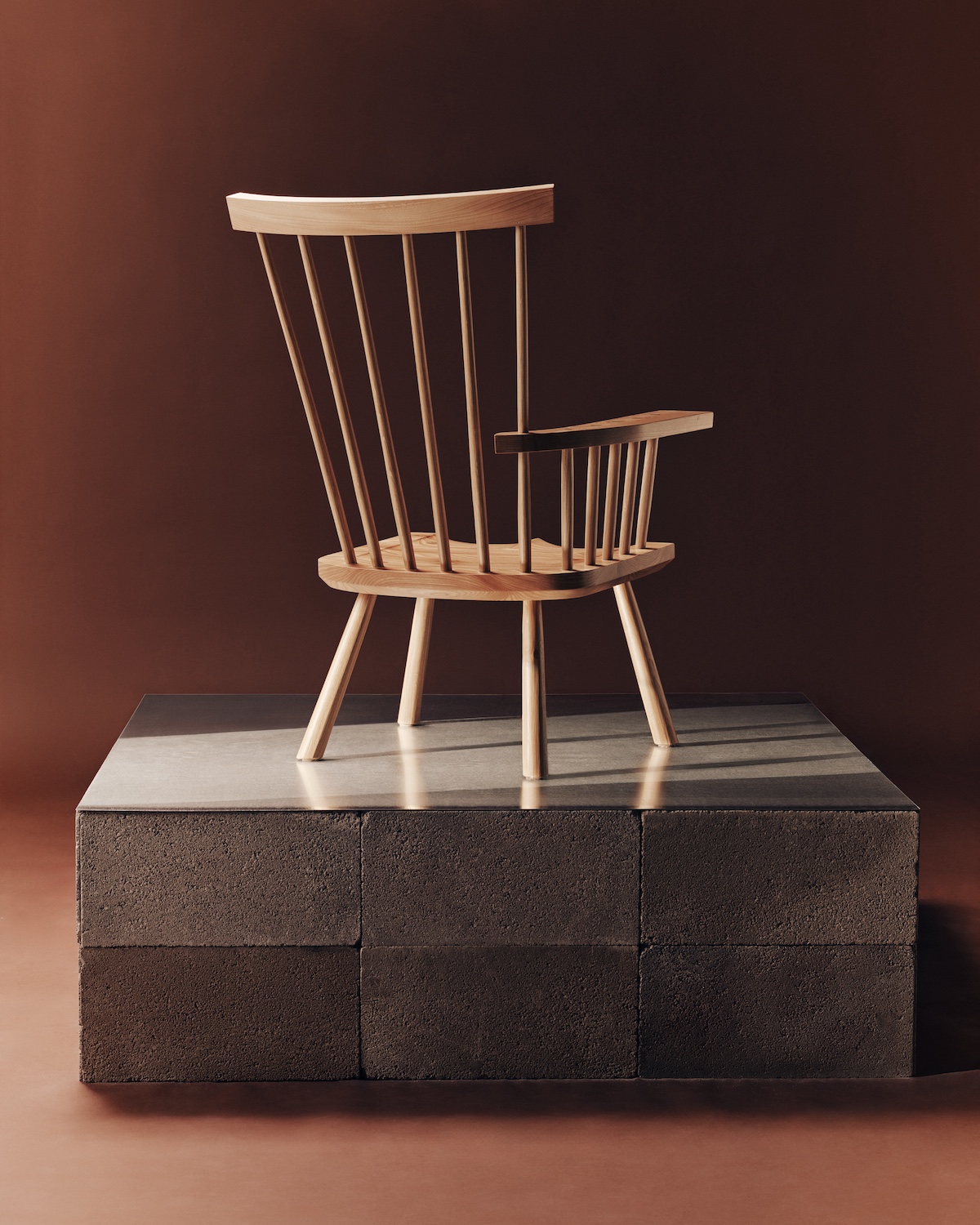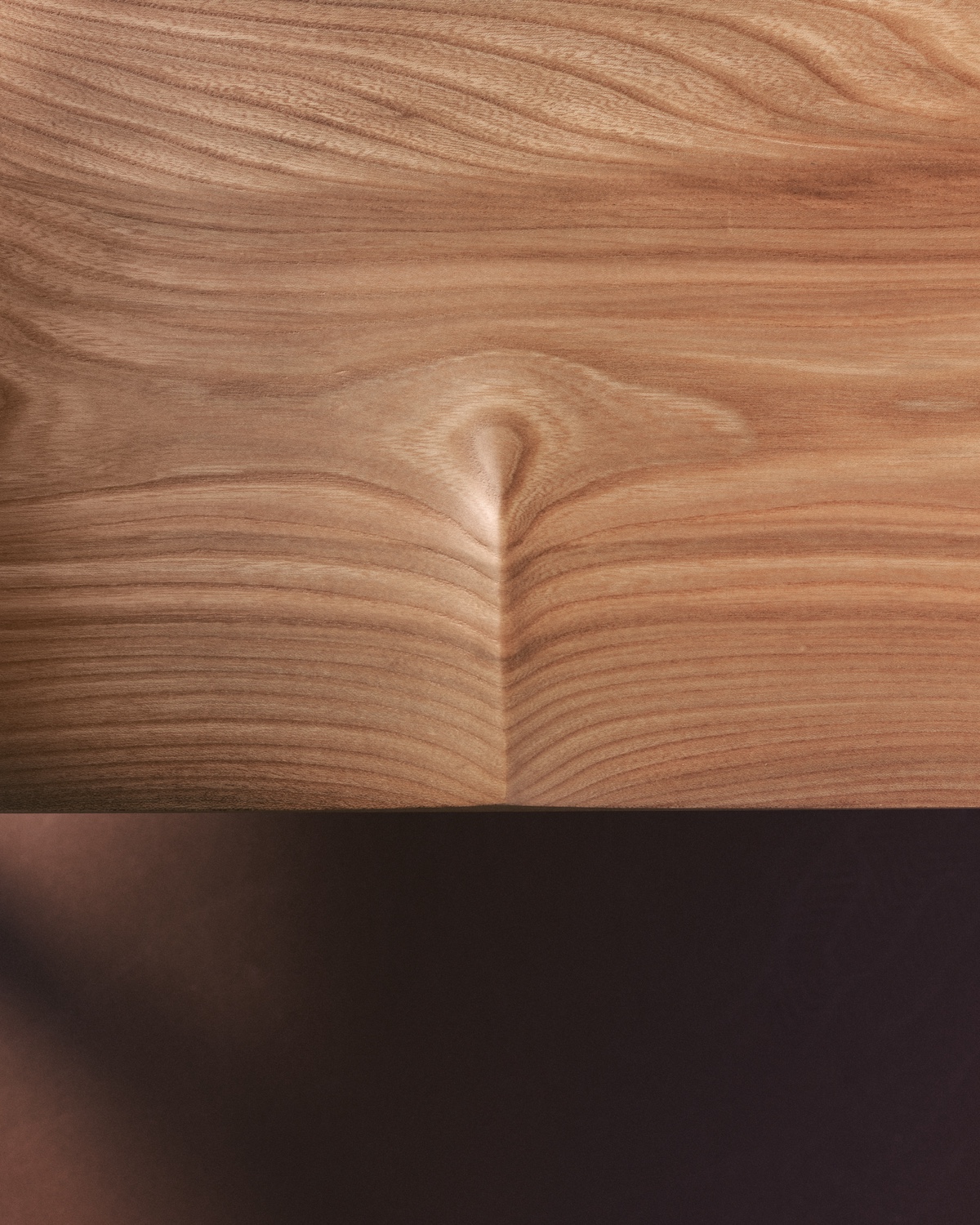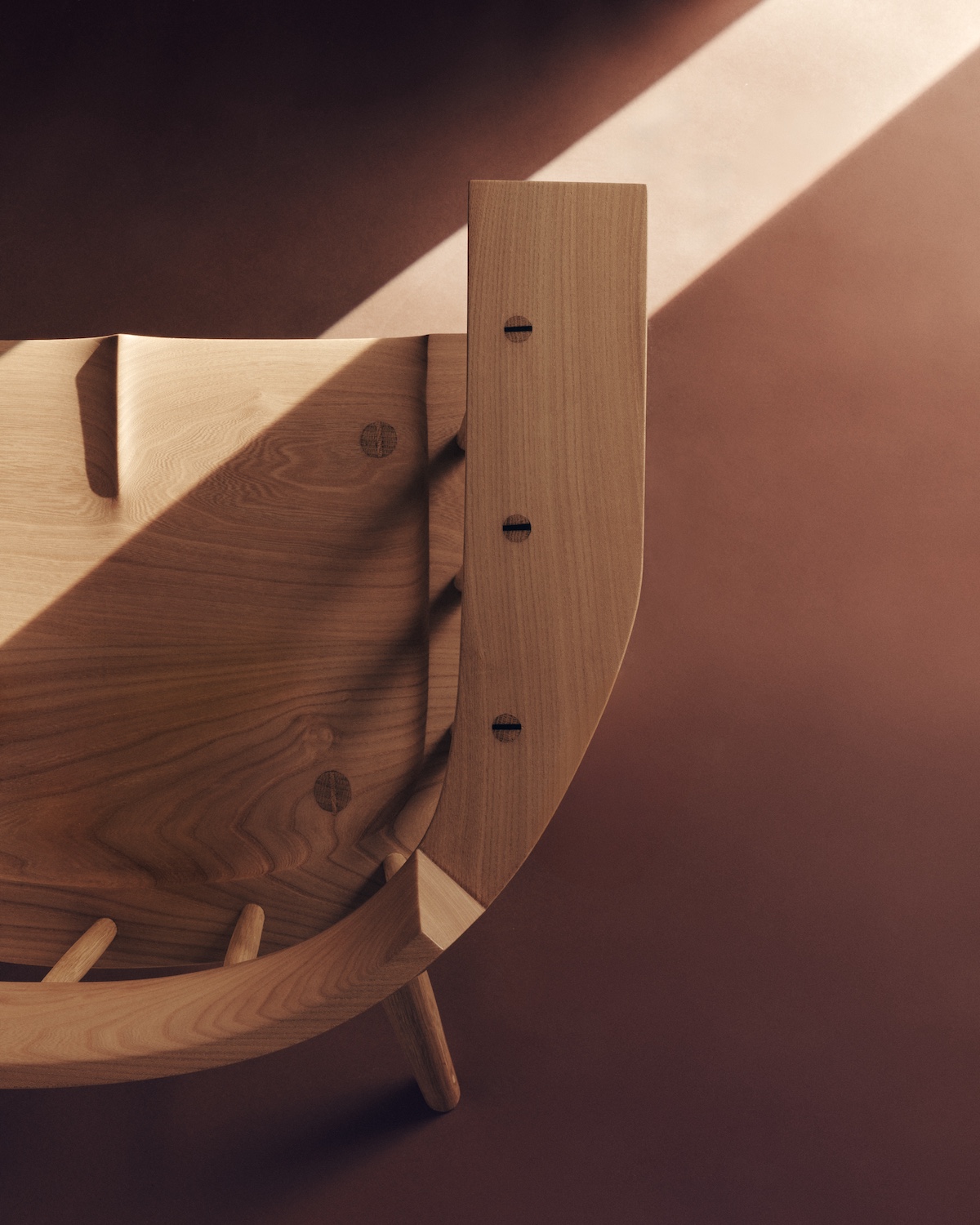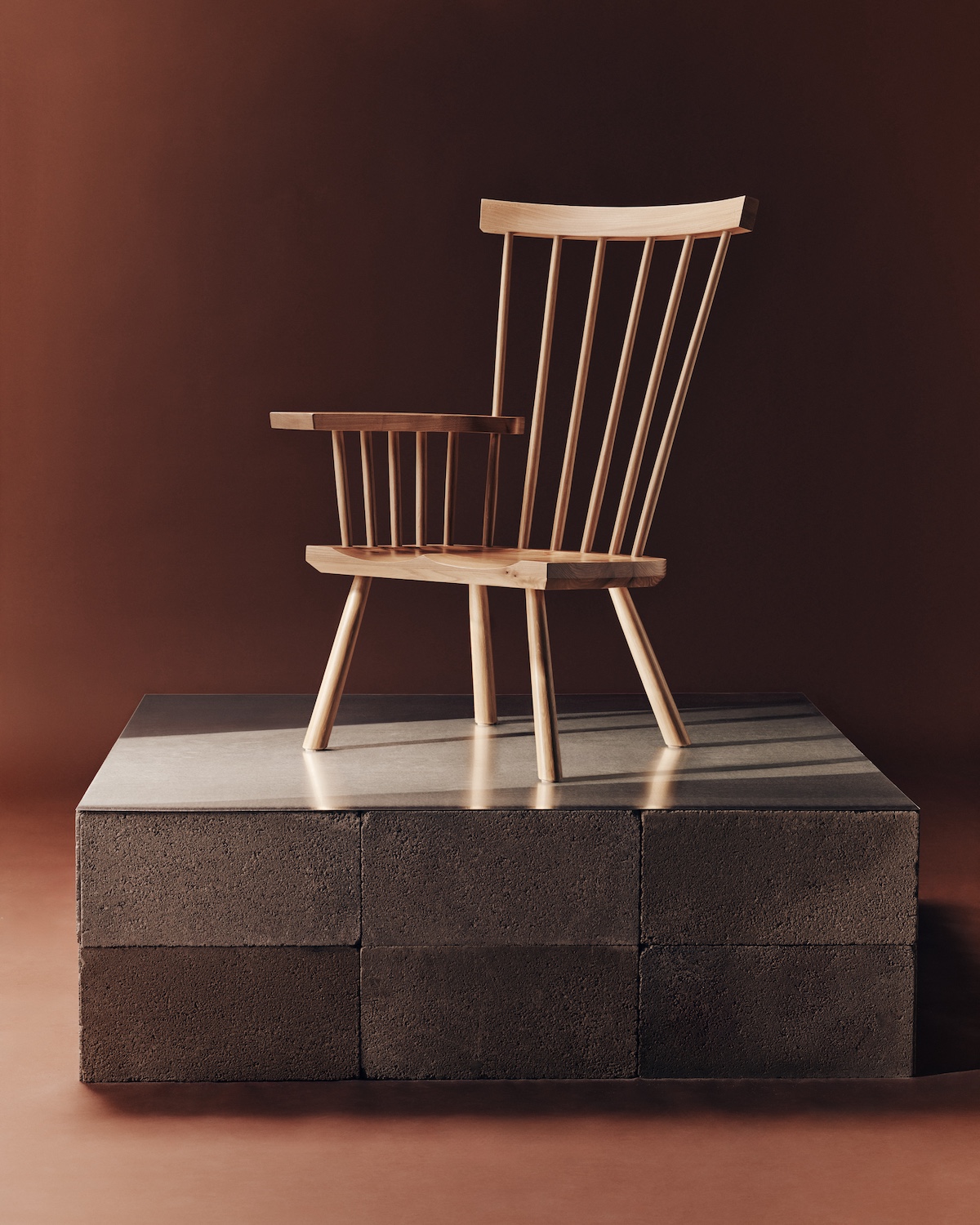JOIN the AFICIONADOS
Get the insider news and lowdown on what we've been up to, where we've been, and who we've met along the way. Be the first to discover new places and get the scoop on our favourites.
In the wild folds of West Wales, where Atlantic winds sweep over hedgerows and slate-roofed cottages, a quiet design evolution has been taking root. The Carn Collection is the result: an elegant reimagining of the humble Welsh Stick Chair, elevated by the steady hands of master craftsman Chris Williams and the conceptual verve of design studio Smörgåsbord. What began as a five-year dialogue – part slow-burning collaboration, part cultural excavation – has culminated in a pair of chairs that feel simultaneously ancient and entirely contemporary.
Rooted in Welsh design heritage that stretches back to the 13th century, the stick chair was once a quiet fixture in every rural farmstead, always by the aelwyd, the hearth. With the Carn Collection, this enduring form is reimagined for a high-end contemporary context, without losing sight of its origins.
Williams is no ordinary maker. Based in Llanybri, a village cradled by green valleys and stone walls, his practice is as much about continuity as it is creation. He works without drawings, guided instead by instinct, memory and touch. A seat angle is gauged not with tools but fingers; proportions are remembered, not measured. The timber – often oak and elm, foraged or locally sourced – is shaped entirely by hand. There is no pretension in his process; only rigour, care and lived experience. It’s this monastic dedication that makes the partnership with Smörgåsbord so compelling. The studio, with outposts in Amsterdam and the far west of Wales, brings a quietly radical clarity to the project: a contemporary lens that doesn’t overwrite tradition but distils it.
The resulting pieces feel like archetypes – chairs as distilled as they are expressive. Gone are the decorative flourishes so often associated with folk furniture; in their place, structural elements take on sculptural weight. The armbow – broad, deliberate, refined – is formed from three pieces of timber, joined with precise 30° scarf joints. Part Scandinavian restraint, part Celtic pragmatism, it sets the tone. Every line has intent. Even the silhouette takes cues from place – the profile echoing the rugged form of Mynydd Carningli, the North Pembrokeshire mountain after which the collection is named.
Carn LBS (Low Back Slab) is the cornerstone: a statement piece that slips just as comfortably into a gallery as it does beside a hearth. Generous in proportion yet sharply drawn, it features slab-like arms wide enough to rest a cup, a glass or a book – gently eliminating the need for a side table. Its taller sibling, Carn HBS (High Back Slab), is a single-armed lounge chair designed for fireside moments. The seat sits lower and steeper; it invites you to lean back, lose time and top up your wine. It can be configured for left- or right-handed drinkers – no detail too small, no function overlooked.
Built with a clarity that borders on devotion, this heritage project of the heart is seeking collaborators with manufacturers that naturally understand the ethos and rigour behind the Carn Collection. The finish options are restrained: solid Welsh oak, treated with Danish oil or clear matt lacquer. There is a visible honesty to the materials, and the evidence of the hand is not hidden.
But this is not an exercise in rustic nostalgia. Smörgåsbord has coined the term Agricultural Modernism to frame the wider intent: a design philosophy rooted in elemental necessity, inspired in part by Geoffrey Bawa’s Tropical Modernism and Tadao Ando’s material precision. The result is a new vernacular for rural Wales – one that is spirited, functional and emotionally resonant. Their work is a study in relevance: design that honours place and purpose without succumbing to pastiche.
The Carn Collection will take centre stage at Ty Rhibyn Isaf – a reimagined farmstead currently under design with Hyde + Hyde Architects. It will serve as a benchmark for this emerging typology: furniture, architecture and landscape speaking the same quiet, crafted language.



